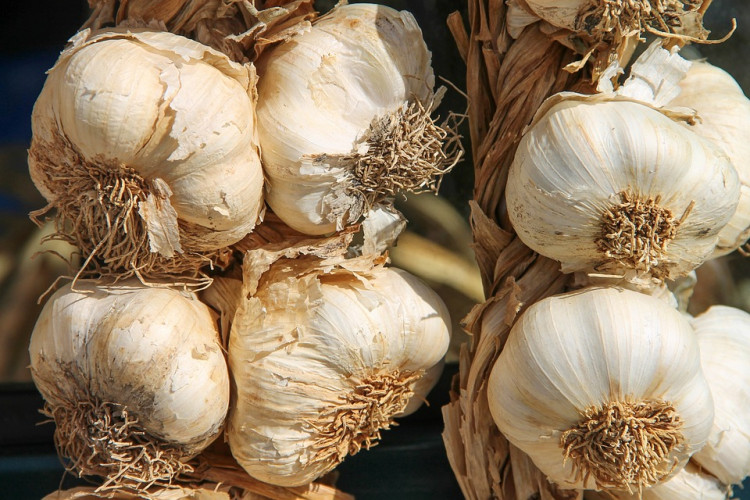The debate over garlic imports from China has taken a sharp turn, with U.S. Senator Rick Scott calling for an investigation into the safety and labor practices involved in Chinese garlic production, labeling it a "major threat to security and food safety." China's foreign ministry dismissed the allegations, urging American politicians to exercise "common sense and rationality."
Scott's concerns center on claims that Chinese garlic is grown in unsanitary conditions, fertilized with human excrement, and harvested under exploitative labor practices, including forced and child labor. In a series of letters to U.S. government agencies, Scott referred to the product as "Chinese sewage garlic," saying it "floods our markets" at prices that undercut domestic growers adhering to stricter regulations.
The senator's allegations are not new. He has raised similar concerns over the past year, even introducing legislation in January 2023 to ban Chinese garlic imports, though the bill failed to gain traction in Congress. Recently, Scott urged the U.S. Department of Agriculture (USDA), Department of Labor, and U.S. Trade Representative to investigate the safety and economic impact of garlic imports from China. "Chinese sewage garlic continues to flood our markets, often at prices that undermine domestic producers who adhere to far more stringent health and labor regulations," Scott said.
China has pushed back on the claims. Mao Ning, a spokesperson for the Chinese foreign ministry, dismissed Scott's remarks during a press conference, stating, "Generalizing the concept of national security and politicizing economic and trade issues will only increase security risks to the global supply chain and ultimately hurt others and ourselves." Mao also criticized Scott's stance as irrational, saying, "I advise some American politicians to exercise more common sense to avoid ridicule."
"The garlic would never have dreamed that it would pose a threat to the United States," Mao mocked.
China is the largest foreign supplier of garlic to the United States, shipping millions of dollars' worth annually. While the trade is a small fraction of China's $500 billion in total exports to the U.S., Scott's push to curtail imports could disrupt the garlic market, potentially raising prices for American consumers. Domestic garlic growers, particularly in California-which accounts for over 80% of U.S. garlic production-would likely benefit from reduced competition.
The controversy has drawn mixed reactions from experts. A 2017 report by McGill University's Office of Science and Society noted no evidence that Chinese garlic is fertilized with human waste, adding that such practices, while unappealing, are not necessarily unsafe. The report emphasized that garlic's skin provides a natural barrier against contaminants and advised consumers to wash garlic thoroughly, regardless of its origin.
Scott's criticism extends beyond safety concerns. In his letters, he alleged that garlic production in China involves forced labor, urging the U.S. Department of Labor to include Chinese garlic on its "List of Goods Produced by Child Labor or Forced Labor." He also highlighted the economic impact of low-cost imports, stating, "The influx of imported garlic from the People's Republic of China undermines the integrity of our agricultural supply chains and jeopardizes U.S. food security."
Trade tensions between the U.S. and China are not new. During former President Donald Trump's administration, Chinese garlic faced escalating tariffs, rising to 25% in 2019 as part of a broader trade war. Analysts say Scott's campaign could reignite such tensions, particularly with Trump's impending return to the White House in January 2025, where he has signaled an intent to impose steep tariffs on Chinese goods.
The issue has also invited ridicule from Chinese state media. Last year, China Daily published an editorial mocking Scott's claims, calling him a "paranoid U.S. politician." Meanwhile, Scott continues to advocate for restricting Chinese garlic in U.S. military commissaries and dining halls, urging grocery stores to stop selling the product entirely.
If successful, Scott's efforts to curb Chinese garlic imports could have significant economic implications. Reduced supply in the U.S. would likely drive up prices, benefiting domestic growers but burdening consumers. In 2022, California devoted over 25,800 acres to garlic production, dwarfing other states in output.






